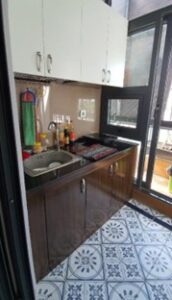Scheduled Meeting with Financial Aid Advisor
While we strive to keep our programs affordable, we recognize that many students need financial help. The good news is that most financial aid you are currently receiving is applicable toward study abroad. Generally, you can transfer federal financial aid, such as Pell Grants and Stafford Loans, which do not need to be repaid until after graduation.
See the Higher Education Act of 1965 (Public Law 102-325, 106 Stat.448): The act was reauthorized in the summer of 1992 to include a number of provisions to facilitate the use of federal financial aid for study abroad. (NAFSA: Association of International Educators Newsletter, Volume 44, No 3/Dec-Jan 1993).
The U.S. Department of Education advised that the Perkins Loans, SSIG Grant Program, Pell Grants, FSEOG Grants, Stafford Loans, SLS loans, PLUS Loans and Consolidation loans can now be used for study abroad. Your study abroad experience does not have to be compulsory for your degree program in order to apply your aid. Please contact your home institution financial aid office to discuss your financial aid options for study abroad.
FINANCIAL AID AGREEMENT FORM (FAA)
The Financial Aid Agreement form (FAA) is completed by you and your home university. The FAA acts as proof of incoming funds and allows you to defer a portion of your payment until your financial aid awards are released, even if that is after your program start date. Note: If your entire program is covered by aid, a down payment is still required to confirm your participation in the program. More information will be available via a link in your TEAN portal.
- Download the Financial Aid Agreement from your TEAN application
2. Read the information carefully and sign and date the student portion at the bottom
- Send your signed FAA to your financial aid office and ask them to either send to info@teanabroad.org or return the form to you to upload to your TEAN application.
- Pay your program’s down payment OR the balance not covered by aid (whichever amount is greater) by your program’s payment deadline.
For example: If your financial aid covers all but $700 of your balance and your program down payment is $1000, you would pay $1,000 by the payment deadline. This $1,000 would go towards your total program balance.
If your financial aid only covers $5,000 of your $12,000 program balance, you would pay the difference ($7,000) at the payment deadline and then pay the remaining $5,000 once your aid is disbursed.
- Pay your remaining balance once your financial aid is disbursed. Payment is due to TEAN within 5 business days of the date listed on your FAA form.
Your FAA is due by your program’s payment deadline. You can read more about financial aid and payment options here.
Consortium Agreements
If you are currently receiving financial aid (federal loans, grants, scholarships, etc.) from your home institution please follow these steps. The financial aid you currently receive may not be processed in the same manner and the same amounts may not be awarded to you.
Step 1: Visit your home university’s financial aid office and inform them you will be studying abroad through TEAN. Ask them how much of your current aid will transfer for a study abroad experience. You will also need to check if there is additional paperwork specific to your home university.
Step 2: Ask your financial aid office if they have a “consortium agreement” (do not worry if this is a foreign term to you, they will know what it is!) which essentially means they will complete all paperwork regarding your existing financial aid while you are studying abroad. This is the ideal arrangement as it makes the whole process easier for everyone. You will also need to have a TEAN Financial Aid Agreement form filled out that will be provided to you by your Program Manager.
Step 3: If they have a consortium agreement, most likely they will have an existing agreement that is university specific. TEAN will likely have to sign this for you and send it back to them. It will not go to your overseas institution. The TEAN Financial Aid Agreement form should then be faxed or emailed to us.
Unfortunately, not all universities will sign a consortium agreement. If this applies to your school please consult us immediately for further guidance.
Please note: The financial aid process is very complex and adequate planning is necessary. You should contact your home institution’s financial aid office if you will, or think you may need to, apply loans or aid to your study abroad program. TEAN is not a lending institution so unfortunately, all financial aid and loan discussions will need to be made within your home university’s financial aid office.











